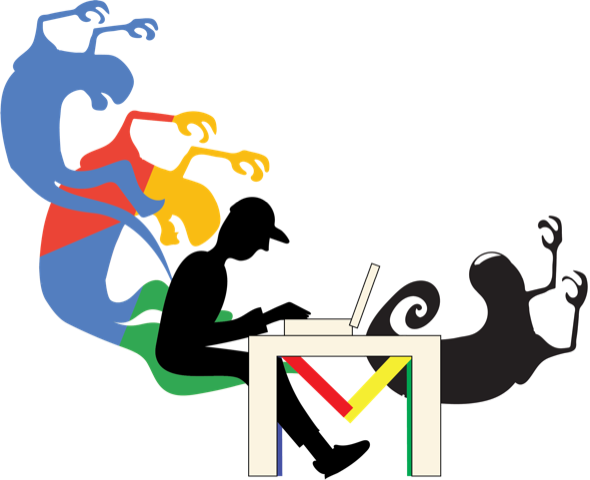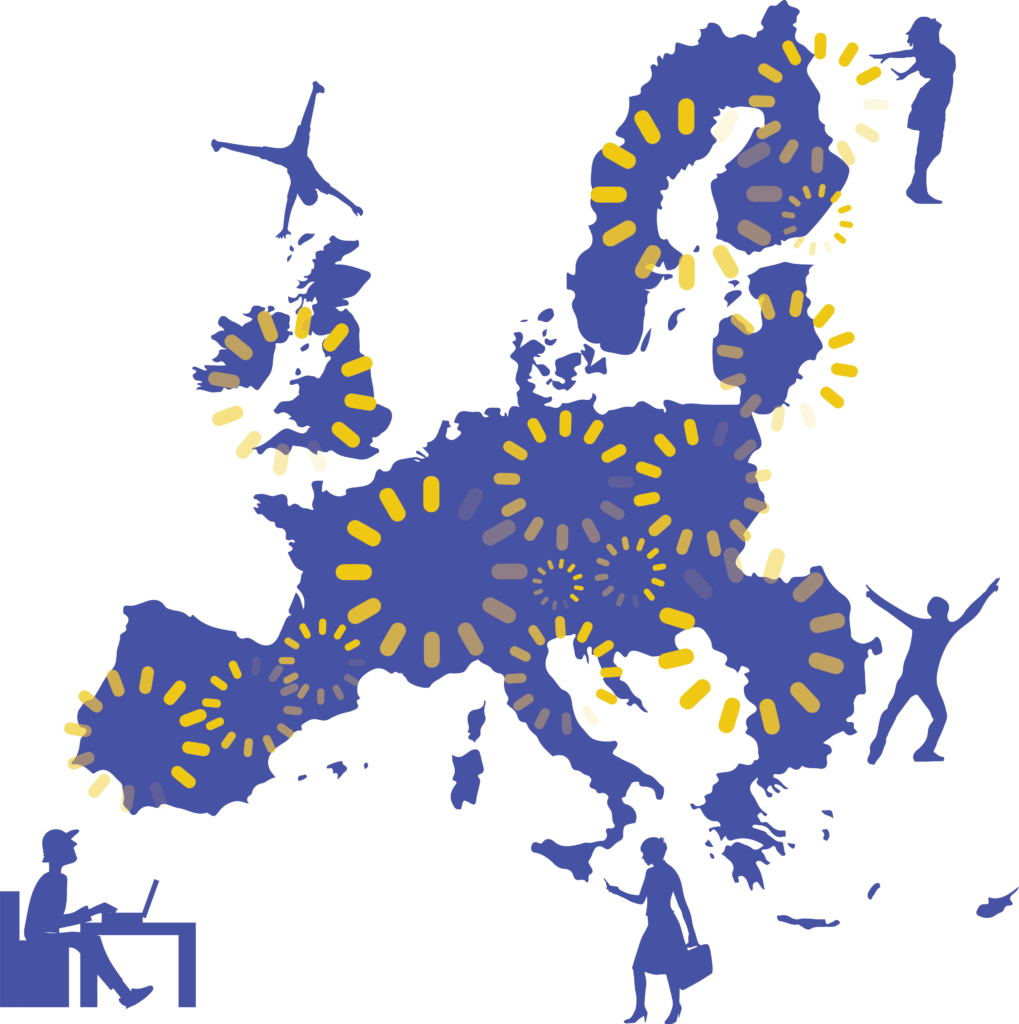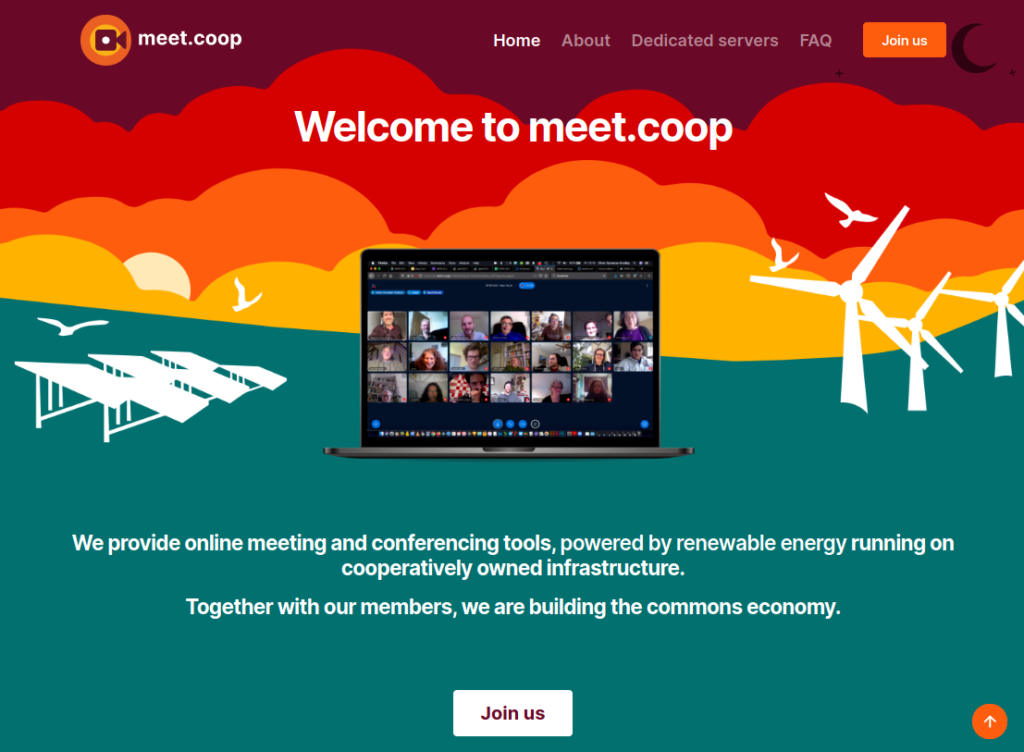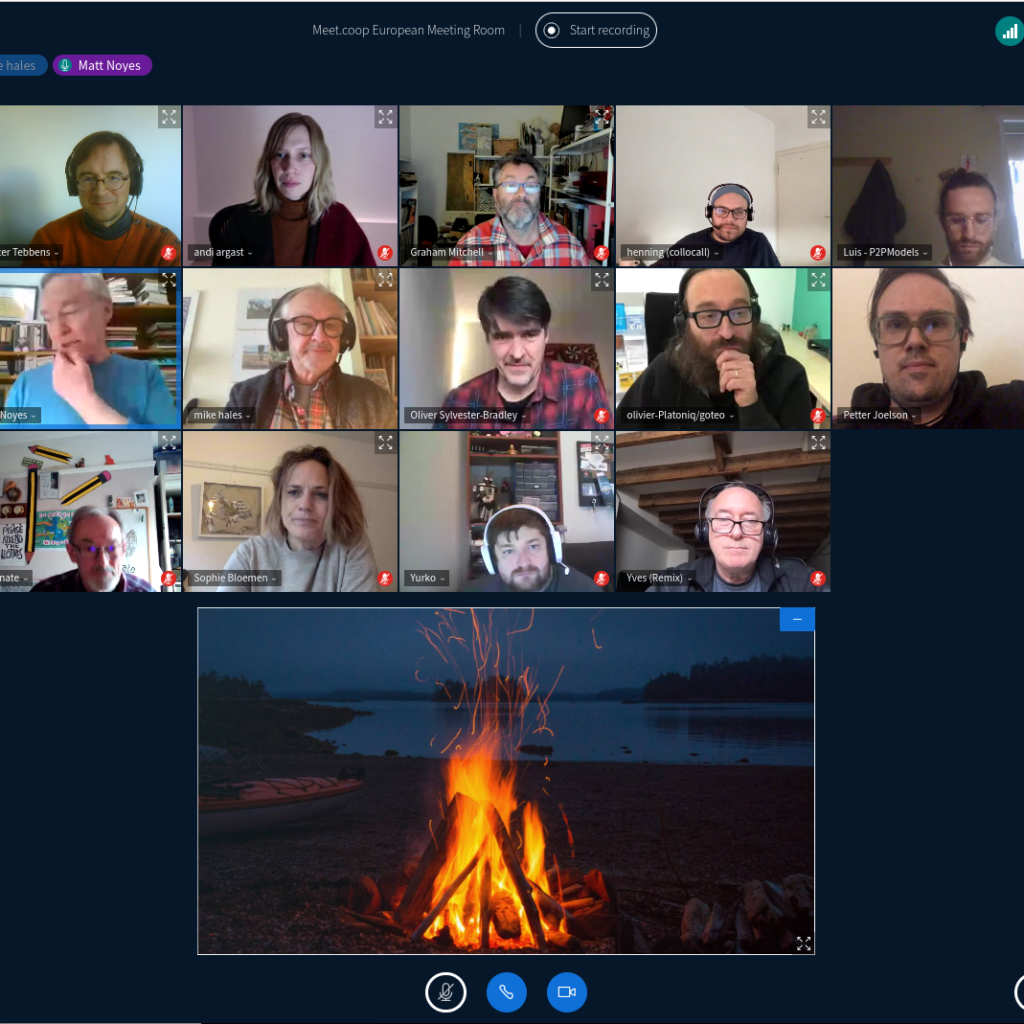
This blog is part of Human Stories of Digital Transformation. With this project, our goal is to direct attention to the lack of public and civic spaces online and the effect of extractive business practices on people’s daily lives. At the same time, we offer pathways to an alternative digital infrastructure and point to alternative practices that can serve as models and inspiration.
We look at the impact of the current dominant digital business models on five domains: local economy and communities, care, workers’ rights, education, public debate, and climate. As the awareness of the impacts of extractive practices on all these different spheres of our lives grows, more and more people, organisations, governments, and other actors want to be part of the change. With this project, we aim to boost those efforts and offer concrete ideas for public value-based digital infrastructures and business models.
Is the internet broken? Can we envision alternative ways of designing and organizing digital spaces, beyond the ad-tech driven spaces that are owned by a handful of billionaires? In a recent and widely-shared blog, technologist Robin Berjon shares his thoughts about the governance of the internet. He calls the internet a ‘largely failed state with much infrastructure at the whims of gangs and their billionaire warlords’, before sharing a variety of different governance models from the offline world as alternative models. Berjon offers a hopeful vision of many differing organizing models, as alternatives to the internet’s megacorporations, that are driven by ‘Engineer King ideology, limited in their thinking by the ingrained belief that technology is apolitical’. These megacorporations cannot be trusted to build the future, Berjon says.
Last year, our organization investigated one essential building block of a better digital ecosystem: interoperability. We concluded that it’s vital that we promote ‘generative interoperability’ as a ‘positive norm’, acting as ‘the foundation for an open online ecosystem, but also part of a larger approach to building more democratic digital spaces’. In a series of published interviews, we looked at what different actors need to build these spaces.
What can civil servants do to foster these more democratic digital spaces? And what difficulties do entrepreneurs and coders encounter, when trying to build alternative tech in an inhospitable ecosystem? What role can public media organizations play? What should this alternative digital ecosystem offer for initiatives to thrive in it? And is interoperability as a design principle enough, or should we also look into alternative economic logics and ownership models? To launch the publication that was the result of this investigation, we hosted this event which included Amandine Le Pape, co-founder of Element (a tool that our organization uses instead of Slack), and co-founder and guardian of the Matrix Foundation. You can read the publication about generative interoperability here.


The next step after our work on interoperability was the launch of a new project, this time more focused on the frontend: how is the digital transformation affecting people in different spheres of their everyday lives? What are alternatives and new initiatives that we can highlight, that can inspire transformative change? From our research into interoperability, it became clear that we need to facilitate much more cooperative models if we want to truly foster public civic digital ecosystems. One of the most important alternatives that is now emerging all over the world is the platform coop, which we have described here before.
Today, we look at Meet.coop, a platform coop that offers a video conferencing tool, alternative to Zoom and Teams. We speak with Wouter Tebbens, who co-founded the organization a few years ago. We think it’s vital to hear directly from founders in the commons, to learn from them and to share these experiences and their insights. It’s crucial that we study initiatives in the platform cooperativism movement and to share their successes and failures, to learn from their new approach to digital entrepreneurship.
*
Thomas de Groot (TdG): How did Meet.coop start, can you take us along on that journey?
Wouter Tebbens (WT): ‘We started in May 2020, at the time of the pandemic. We had all just gone into lockdown. During that first phase, we already knew we wanted to create an online cooperative platform for meetings. Every Thursday we held a meeting and everyone was welcome to attend, and during those meetings we designed the concept. New people joined every week. The core was formed by three organizations from the open source movement: Web Architects, Collective Tools and femProcommuns. Soon Hypha, a workers’ co-op from Toronto, also joined. A first milestone for us was the OpenCoop Conference in London, which was completely online because of Covid. We then emailed them, asking why they were organizing it on Zoom. After a few phone calls, we had convinced them to do it on Meet.coop, even though we didn’t exist then. So then we had to quickly set up servers to host that conference, and then the ball really started rolling.’
TdG: Did you know from the start that you wanted to set up a video conferencing tool, or did you start with the idea for a platform coop?
WT: ‘We had already started in 2017 with Commons Cloud, a cooperative platform for online work. In that ‘suite’, there was already a cooperative platform for documents, surveys, forms, a chat functionality and much more. Some civil society organizations in our world were already working with Commons Cloud. Only for video calls did they all still used Jitsi. But during the lockdown we discovered that you cannot host online workshops on Jitsi for 40 people. That tool just doesn’t lend itself to that. So we wanted BigBlueButton, which at that time was the best product for online meetings for larger groups. Schools and universities were already working with that and so were larger organizations. Only it was much more complicated to set up. Because you really need a dedicated server to use it. We first came together to see whether we could share a BBB server. And when we would use it internally, why not also offer it to other organisations, who could become user members? So then came the idea for Meet.coop, a cooperative with two types of members: users and workers. The idea was that our own organizations, small non-profits in civil society, would become paying members, and in exchange for that financial contribution we would then relieve them of the burden of maintaining BigBlueButton.
‘We began a co-creation process that lasted several months, thinking about exactly what services to provide, how do we make decisions, and how can people become members. So out of that came a governance, a kind of simple bylaws, which laid out what our services were, how you can become a member and how we made decisions together. We brought our administration to Open Collective, a well-known online service for collectives to receive and administer funds. Through Open Collective, people could donate, and on their platform we could also track everything transparently. So we didn’t even have to set up a new legal entity or a bank account yet but we could already run. All the money flowed through Platform6, a friendly organization that acted as a fiscal host, a kind of temporary trustee, through the OpenCollective platform.’

TdG: What were your sources of inspiration, aside from the commons?
WT: ‘We were inspired by Enspiral, Framasoft and May First to name just a few. Also, we took the 7 principles for cooperatives, as published by the International Cooperative Alliance and gave them meaning for our context, based on our own mission. That was one of the first steps. And those principles have never changed since.
‘We have always shared as much as we can with our community, and I mean especially the group of members. So the document that contains the general terms of use, for example, which includes provisions about licensing and so on. Also the online setup of our collaboration environment was very instructive for others in the community. The forum where we discussed and co-created, the tools that were open source, everything was about sharing knowledge and making practices insightful. I think our members were able to learn a lot from this. With hindsight, I do think that we could have reached the broader community, i.e. people outside our organizations, more with sharing insights, for example through more effort on communication.
‘We also always had the ambition to set up federated collectives in Latin America and Asia so that our allies in that region could do the same. We already had so much experience setting up a platform co-op that we wanted to share this knowledge, but also the online processes and systems with the people there. We were also having conversations with inspiring partners there, but unfortunately that never materialized.
The commons was an important idea for us, from the beginning. So we took a good look at governance models from the commons, and the social solidarity economy and the platformcoop movement, to set up our own organization accordingly. Also in how we looked at our product: of course you offer a service, but the network you build and the insights you gather are just as valuable, and should also be shared.’

TdG: So after that first phase, what happened next?
WT: ‘Then the next phase began, where we started paying ourselves. We certainly didn’t have enough to pay everyone for their hours, so what we did was we sat down after every quarter and tallied up all the income, asking: how much money of this do you think you’re entitled to, do you think? Then each worker cast a vote and we came to a distribution to each of the team based on the average of the votes. At Commons Cloud, and later at Meet.coop, we did want to pay people for their work as soon as possible, on principle. So that was always the goal.
‘That went well for a while, but it was also a lot of hassle, that whole collective handling of scarce resources. So from the following summer we started paying people for their hours worked in a slightly more formal, less democratic way. So then the peer-reviewed pay was off the table. Furthermore, we then made a marketing plan and a business plan. We had calculated that we needed to get about 3 to 5 times bigger in order to financially break even. And we knew there was potential. So that was the plan.
‘We had four “circles”, into which the work was divided (organisation, product, tech and community). But the product circle, which included marketing, we actually neglected it a bit. We thought people would come to us organically. Which they certainly did, because we had about 200 organizations and collectives joining us. But we had to grow bigger to pay decent wages. Then we hired an experienced person to do the marketing. But at the same time I got another job so I had less time to properly supervise that new colleague. They left after a few months because we didn’t supervise them properly. In retrospect, that was the beginning of the end. Maybe we had made the situation too complicated, with those circles and those democratic processes and the structure of the organization with the board and the members who all had a say. At the same time, we still didn’t have a legal entity or enough income to hire a staff. It had become too complex for the small operation we were running.’
TdG: What will happen to Meet.coop?
WT: ‘In the last few weeks we have had many conversations with the team. Conclusion is that we have to stop. We just announced this. How exactly we then continue is still open: we explore two scenarios: 1) another coop taking over our operation with the commitment to continue to serve our members with a BBB service; 2) a tech coop taking over the members. We’re now in a process to explore with other organisations what they would like to do, how this would fit into their collective strategy. With the meet.coop evolution team, we are actively discussing how meet.coop will evolve. There are in fact various collectives who have shown interest in taking over meet.coop. And though taking over the member base would be the easiest thing to do, we also have a cooperative that is actually interested in maintaining important parts of the multistakeholder base and frontend. So let us see what comes out of that, and I urge everyone to follow the meet.coop forum for further news.’
TdG: I am sorry to hear that. Is it too soon to ask you what you think others can learn from this experience?
WT: ‘Establishing Meet.coop as a platform coop has been truly transformative, for ourselves and for the participants. Everyone I talk to says they’ve learned a lot from it. It’s very instructive for people in a worker coop to include users as members, in the form of a multistakeholder coop. That’s much more in the spirit of the commons. There is always tension here, because there is a big difference between the perception of a worker and a “customer” – they want different things from the organization as well. So we learned a lot from that.
‘Another aspect we learned a lot from is the importance of having a legal entity, or not having one. Working with Open Collective was super interesting and valuable, and that showed us that so you can be very flexible, you can start tomorrow without the hassle of notaries! On the other hand, our status made it difficult to work with funders or governments who need to have contracts and other legal documents.
‘The conversations about what kind of legal entity, what all should be in the bylaws, and in which country do you register your organisation? That’s all highly political, we realized that from the beginning. So I would definitely advise new collectives to get started first, and invest in product, test it with your potential users, community and only later, when you get around to it, on the notarial side. Looking back, we didn’t look at revenue and potential funders in a business-like enough way. We talked about money too often in an ideological sense, and did not do enough acquisition.’

 ☰
☰